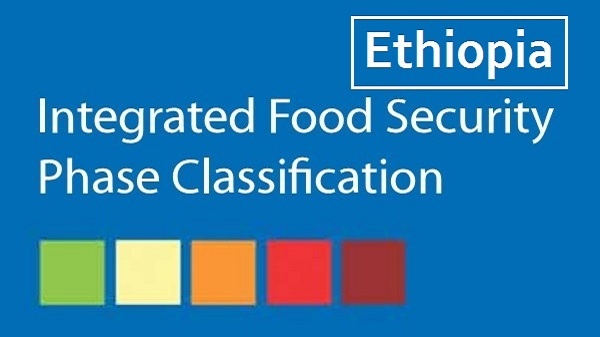
The adoption of the IPC approach to food security analysis is commendable and a key step in efforts to address the determinants and the dynamic nature of food insecurity in Ethiopia
ADDIS ABABA (EU in Ethiopia) – The Government of Ethiopia released the first Integrated Food Security Phase Classification (IPC) analysis report in November 2019, thanks to funding support from the European Union (EU) through the Food and Agriculture Organization of the United Nations (FAO). The IPC analysis revealed that about 8.5 million people would face severe food insecurity in six regions between February and June 2020 unless stakeholders implement timely and appropriate interventions.
The IPC provides a set of standardized tools and procedures as a common language for the analysis and classification of the severity and causes of food insecurity. The IPC is also a multi-stakeholder process for sharing information and building technical consensus within an IPC Technical Working Group (TWG). This is the starting point; the IPC will be updated with new information on a yearly basis.
“As it is a government-led initiative, the sustainability of the IPC is hinged on continued collaboration among stakeholders. We appreciate the funding and technical support provided by the EU and other development partners. We call upon all development partners to support the strengthening of the IPC processes,” said Commissioner Mitiku Kassa of the National Disaster Risk Management Commission (NDRMC).
The IPC is also a forum for food security technical dialogue that results in joint analysis and consensus of the food security situation, which is fundamental in designing coordinated and coherent interventions. The NDRMC, the Ministry of Agriculture, the Central Statistical Agency (CSA), and the National Meteorology Agency represent the government on the IPC TWG. Other members of the IPC TWG are United Nations agencies (FAO, UNICEF, WFP and OCHA) and Non-Governmental Organizations (Action Against Hunger, CARE International, Catholic Relief Services, FEWS NET, GOAL, OXFAM and World Vision).
Ms. Fatouma Seid, the FAO Representative in Ethiopia said, “The adoption of the IPC approach to food security analysis is commendable and a key step in efforts to address the determinants and the dynamic nature of food insecurity in Ethiopia. The IPC will contribute towards the development of a single government-owned harmonized early warning system that is able to trigger the Productive Safety Net Program and the regional Disaster Risk Management contingency funds as well as appropriate responses for the food insecure population classified in IPC Phase 3 (Crisis) and IPC Phase 4 (Emergency)”.
The EU Head of Cooperation to Ethiopia, Mrs. Erik Habers said, “This type of funding is part of our strategic support to the government of Ethiopia to enhance food security information, national social protection and disaster risk management systems within the framework of our cooperation. We hope the government can achieve regular food security analysis using the IPC approach every year.”
Integrated Food Security Phase Classification (IPC): Overview
The Integrated Food Security Phase Classification (IPC) is an innovative multi-partner initiative for improving food security and nutrition analysis and decision-making. By using the IPC classification and analytical approach, Governments, UN Agencies, NGOs, civil society and other relevant actors, work together to determine the severity and magnitude of acute and chronic food insecurity, and acute malnutrition situations in a country, according to internationally-recognised scientific standards.
The main goal of the IPC is to provide decision-makers with a rigorous, evidence- and consensus-based analysis of food insecurity and acute malnutrition situations, to inform emergency responses as well as medium- and long-term policy and programming.
The IPC was originally developed in 2004 to be used in Somalia by FAO’s Food Security and Nutrition Analysis Unit (FSNAU). Since then, a global partnership of 15 organizations is leading the development and implementation of the IPC at global, regional and country level. With over 10 years of application, the IPC has proved to be one of the best practices in the global food security field, and a model of collaboration in over 30 countries in Latin America, Africa and Asia. Click here to learn more.
Source: EU in Ethiopia
